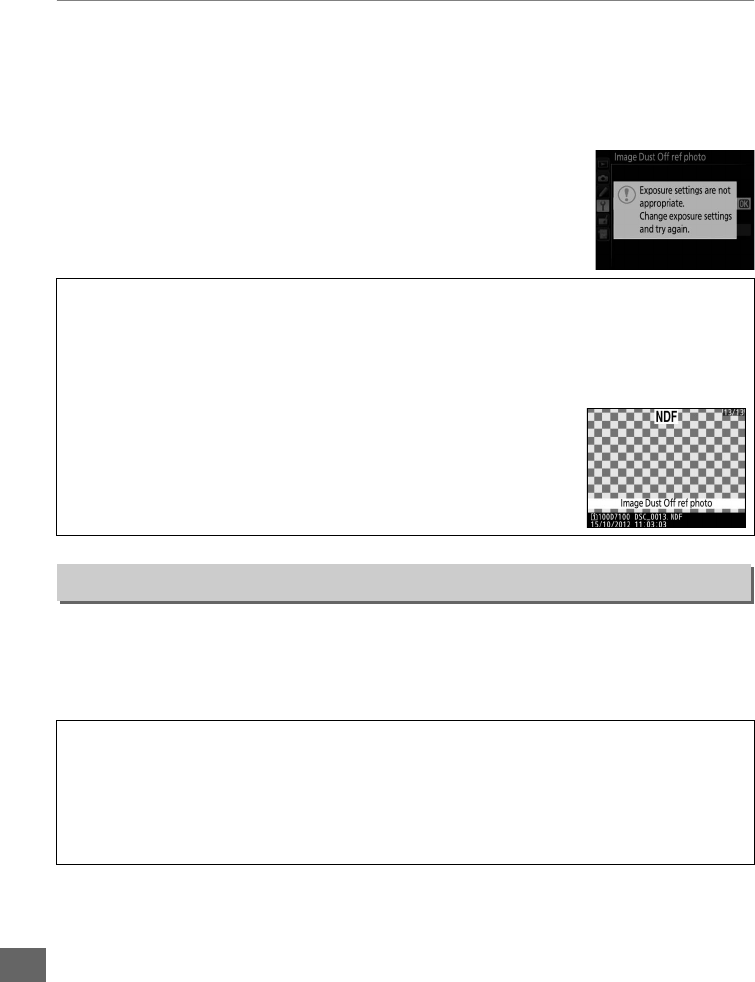
264
U
3 Acquire dust off reference data.
Press the shutter-release button the rest of the way down to acquire Image Dust
Off reference data.
The monitor turns off when the shutter-release button is
pressed.
Note that noise reduction will be performed if the subject is poorly lit,
increasing recording times.
If the reference object is too bright or too dark, the camera
may be unable to acquire Image Dust Off reference data
and the message shown at right will be displayed.
Choose
another reference object and repeat the process from
Step 1.
Reduce flicker and banding when shooting under fluorescent or mercury-vapor
lighting during live view or movie recording.
Choose Auto to allow the camera to
automatically choose the correct frequency, or manually match the frequency to that
of the local AC power supply.
D Image Sensor Cleaning
Dust off reference data recorded before image sensor cleaning is performed can not be used
with photographs taken after image sensor cleaning is performed.
Select Clean sensor and
then start only if the dust off reference data will not be used with existing photographs.
A Image Dust Off Reference Data
The same reference data can be used for photographs taken with
different lenses or at different apertures.
Reference images can not
be viewed using computer imaging software.
A grid pattern is
displayed when reference images are viewed on the camera.
Flicker Reduction
G button ➜ B setup menu
A Flicker Reduction
If Auto fails to produce the desired results and you are unsure as to the frequency of the local
power supply, test both the 50 and 60 Hz options and choose the one that produces the best
results.
Flicker reduction may not produce the desired results if the subject is very bright, in
which case you should select mode A or M and choose a smaller aperture (higher f-number)
before starting live view.


















